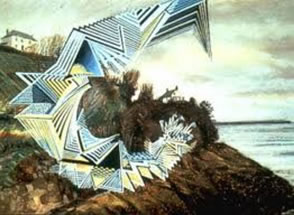

The electrical and chemical waves can occur with normal functioning of the nerves and do not cause harm to the brain. The most common type of aura is visual aura, which occurs when a wave of electrical activity spreads through the visual cortex and causes visual symptoms. This electrical or chemical wave can occur in areas that process sensory signals, speech centers or centers that control movement.

The part of the brain where the electrical or chemical wave spreads determines the type of symptoms you might experience. There is evidence that the migraine aura is due to an electrical or chemical wave that moves across the brain. Request an Appointment at Mayo Clinic Causes

Your doctor will need to rule out more-serious conditions, such as a stroke. See your doctor immediately if you have new signs and symptoms of migraine with aura, such as temporary vision loss, speech or language difficulty, and muscle weakness on one side of your body. Numbness, typically felt as tingling in one hand or on one side of your face that may spread slowly along a limb.Other temporary disturbances sometimes associated with migraine aura include: Zigzag lines that gradually float across your field of vision.Blind spots (scotomas), which are sometimes outlined by simple geometric designs.Most people who have migraine with aura develop temporary visual signs and symptoms, which tend to start in the center of the field of vision and spread outward. Sometimes migraine aura occurs without headache, especially in people age 50 and older. Migraine aura usually occurs within an hour before head pain begins and generally lasts less than 60 minutes. We love you and we thank you for gifting us with your work, and we hope to keep adding many new writers & artists to our collective, growing and ever-shifting.Migraine aura symptoms include temporary visual or other disturbances that usually strike before other migraine symptoms - such as intense head pain, nausea, and sensitivity to light and sound. If you have published in KALEIDOSCOPED MAG before, please wait two years before submitting again. In the body of the email, include your submission file (pdf, doc, or jpg preferred, other formats accepted if necessary to your piece), a brief bio, and an answer to the following question: what does it mean to "be kaleidoscoped”? Please note that each of these elements is required for your submission to be considered. In the subject line, include your name and the title of your work. Visual, video, sound, interactive & multi-media: up to 3 works per submission, or up to 15 minutes combined time of engagement.1-5 poems up to ten pages in length, and/or up to 3000 words of prose (in a single work or combined total).We accept submissions that (loosely) fit the parameters below or measures to about 15 minutes of reading/listening/viewing/etc. This issue's conception and call for submissions created by editor Alissa Tuīecause we encourage cross-genre and undefinable work, we offer two ways of measuring the parameters of your piece: by word count, and alternatively, by the time needed to engage with your piece. Send us your poems, your verse, your translations, your drawn, your ballads, your photographs, your tea, and your double scoops with no napkins. We are particularly interested in experimental and hybrid works across all mediums: send the almost, the unexplainable, the confessions, the collaged. Gives us your secrets and your safe zones. Tell us about your hauntings, your voicemails and saved memos, your ephemera, your fortune cookies and your tarot cards. Gossip gives rise to rumor, becoming a ghost itself.Īnd so we declare ghosts as genre, gossip as genre. Ghosts shake our shoulders for attention. Gossip starts as euphoric and sweet entry points for confessions massacring our insides out. These ghosts decide to stay whether we like it or not. Memories twist and pull in ways we don’t understand. Like spectral beings, they re-emerge when we least expect them to. Loneliness, mourning, and rage haunt in the background of the chatter. To gossip can provide a healing, one of levity and mirth or of health and intimacy. Gossip is not idle talk but dendrites branching and connecting as substitute for touch during years of isolation. While often perceived as unnecessary, unkind, and belittling, gossip can serve as a bonding agent between others, a comradery.


 0 kommentar(er)
0 kommentar(er)
